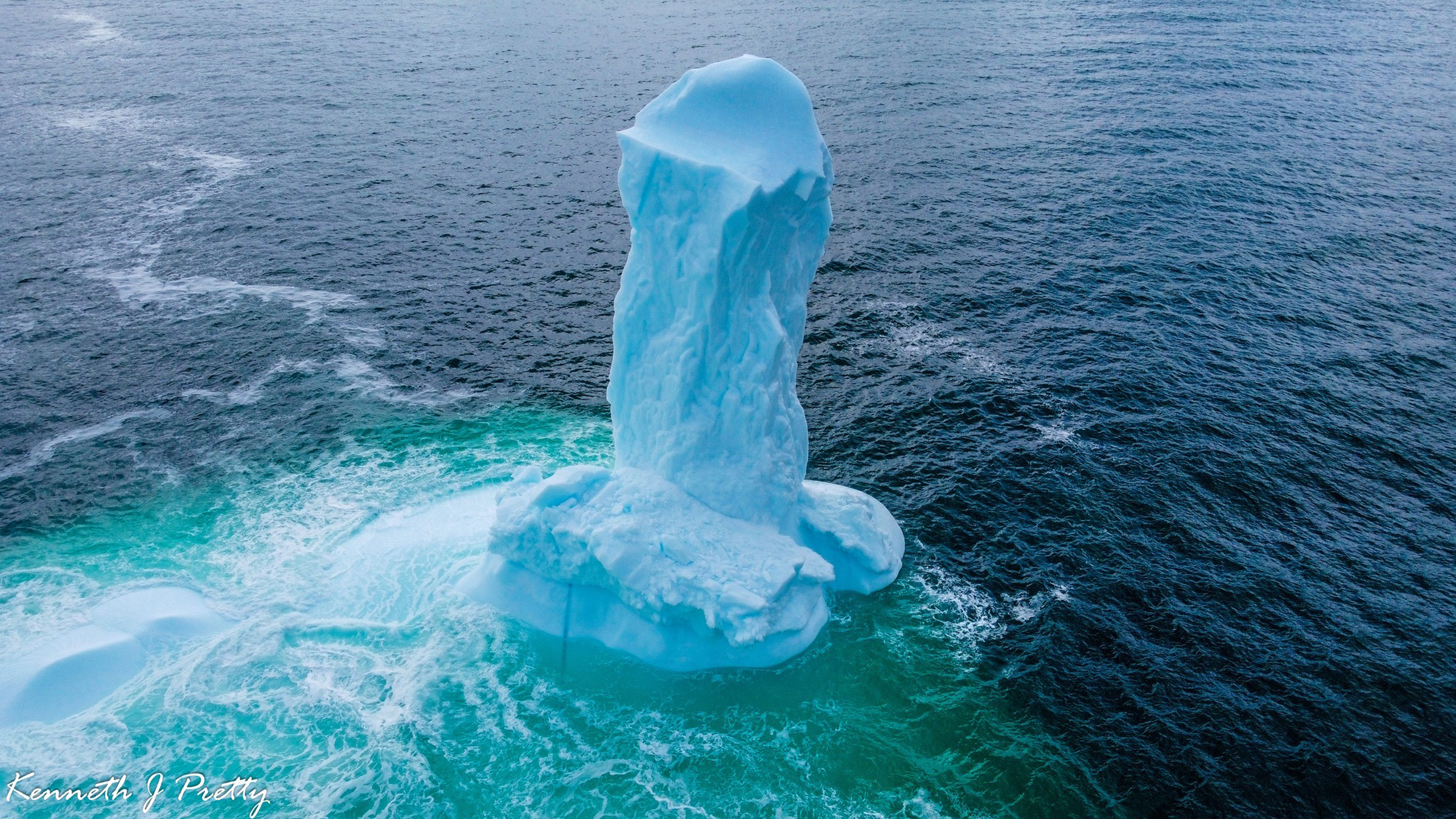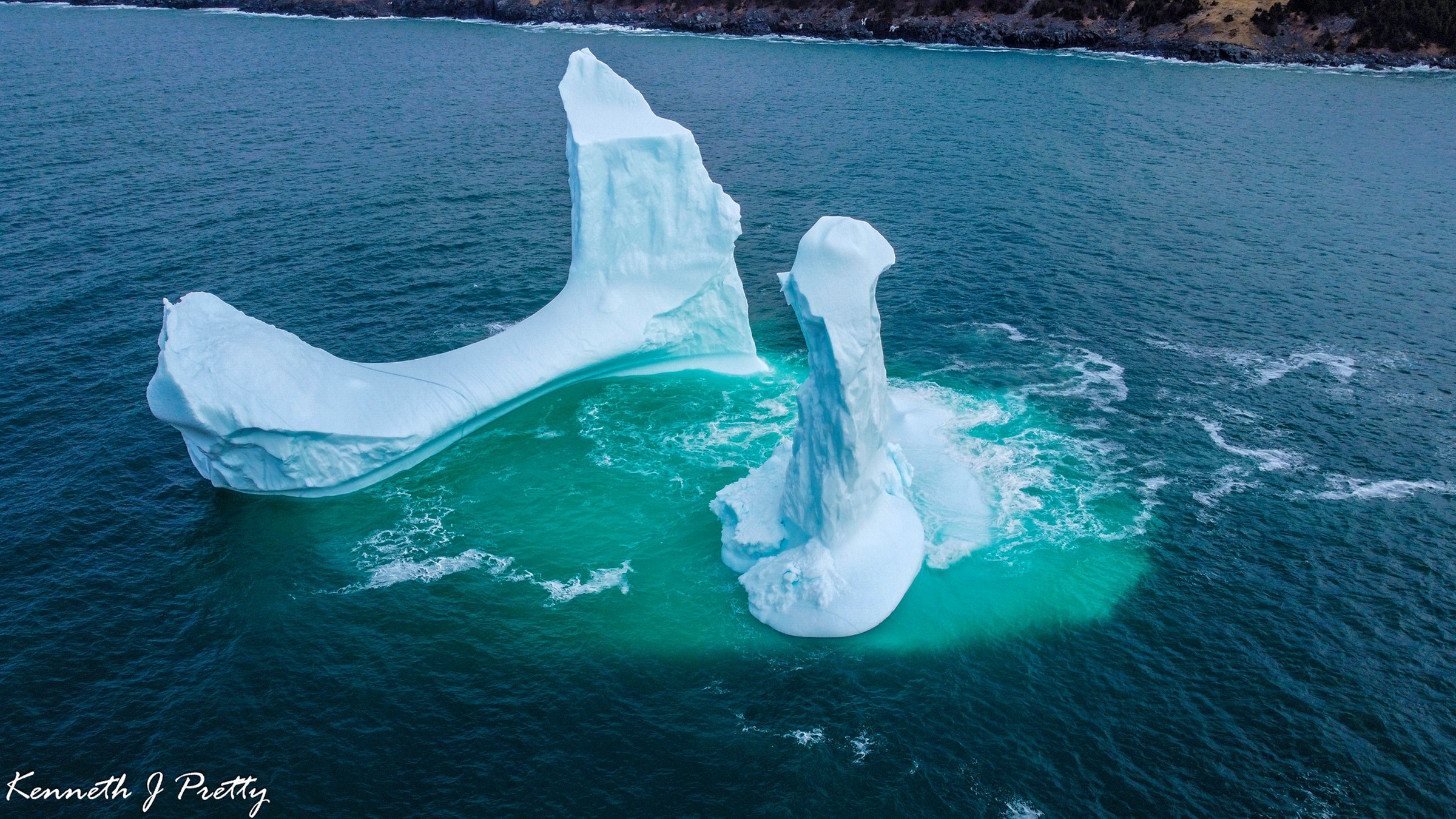Giant phallus-shaped iceberg floating in Conception Bay surprises residents of Dildo, Canada
A phallus-shaped iceberg hovered off the coast of Dildo, Newfoundland in Conception Bay before collapsing.

Get the world’s most fascinating discoveries delivered straight to your inbox.
You are now subscribed
Your newsletter sign-up was successful
Want to add more newsletters?

Delivered Daily
Daily Newsletter
Sign up for the latest discoveries, groundbreaking research and fascinating breakthroughs that impact you and the wider world direct to your inbox.

Once a week
Life's Little Mysteries
Feed your curiosity with an exclusive mystery every week, solved with science and delivered direct to your inbox before it's seen anywhere else.

Once a week
How It Works
Sign up to our free science & technology newsletter for your weekly fix of fascinating articles, quick quizzes, amazing images, and more

Delivered daily
Space.com Newsletter
Breaking space news, the latest updates on rocket launches, skywatching events and more!

Once a month
Watch This Space
Sign up to our monthly entertainment newsletter to keep up with all our coverage of the latest sci-fi and space movies, tv shows, games and books.

Once a week
Night Sky This Week
Discover this week's must-see night sky events, moon phases, and stunning astrophotos. Sign up for our skywatching newsletter and explore the universe with us!
Join the club
Get full access to premium articles, exclusive features and a growing list of member rewards.
It doesn't get any more apt than this: A photographer from the Newfoundland town of Dildo has captured images of a penis-shaped iceberg off the Canadian coast.
The suggestive 'berg consists of a column with a domed head protruding up from two oval rafts of ice. Photographer Ken Pretty captured a shot of the ice formation by drone near the town of Harbour Grace, which sits along — the puns keep adding up — Conception Bay.
Perhaps unsurprisingly, the "dickie berg," as locals are calling it, has attracted international attention, with Pretty sharing news stories from as far away as Thailand and Taiwan on his Facebook page.
"I knew I'd get a lot of comments, but I didn't expect this much," Pretty told the news agency Saltwire on Friday (April 28).
Related: What the heck is the deal with this weird, square iceberg?
Alas, the iceberg lacked staying power: Pretty photographed the 30-foot (9.1 meter) phallic structure on Thursday, April 27. It collapsed the next day.
According to the CBC, it's a strong iceberg season in Newfoundland and Labrador, with more than 200 off the coasts of the two provinces.
Get the world’s most fascinating discoveries delivered straight to your inbox.
"Onshore winds brought in both the pack ice and the bergs," Diane Davis, who runs a Facebook group for iceberg hunters, told the CBC. "If the trend holds up, we should see them for May and June, too. Mother Nature only gave us a handful last year."
Mother Nature has provided more than a handful of phallic shapes to giggle about. In 2021, a man went viral for his photographs of a penis-shaped rock tower in Arches National Park. Cambodian authorities have had to beg people to stop picking the carnivorous plant Nepenthes bokorensis, which just so happens to look like a penis. And don't even ask about California's plague of penis fish, which washed ashore on Drakes Beach in 2019. (They were actually marine worms, which have a long and storied history of looking phallic.)

Stephanie Pappas is a contributing writer for Live Science, covering topics ranging from geoscience to archaeology to the human brain and behavior. She was previously a senior writer for Live Science but is now a freelancer based in Denver, Colorado, and regularly contributes to Scientific American and The Monitor, the monthly magazine of the American Psychological Association. Stephanie received a bachelor's degree in psychology from the University of South Carolina and a graduate certificate in science communication from the University of California, Santa Cruz.
 Live Science Plus
Live Science Plus











